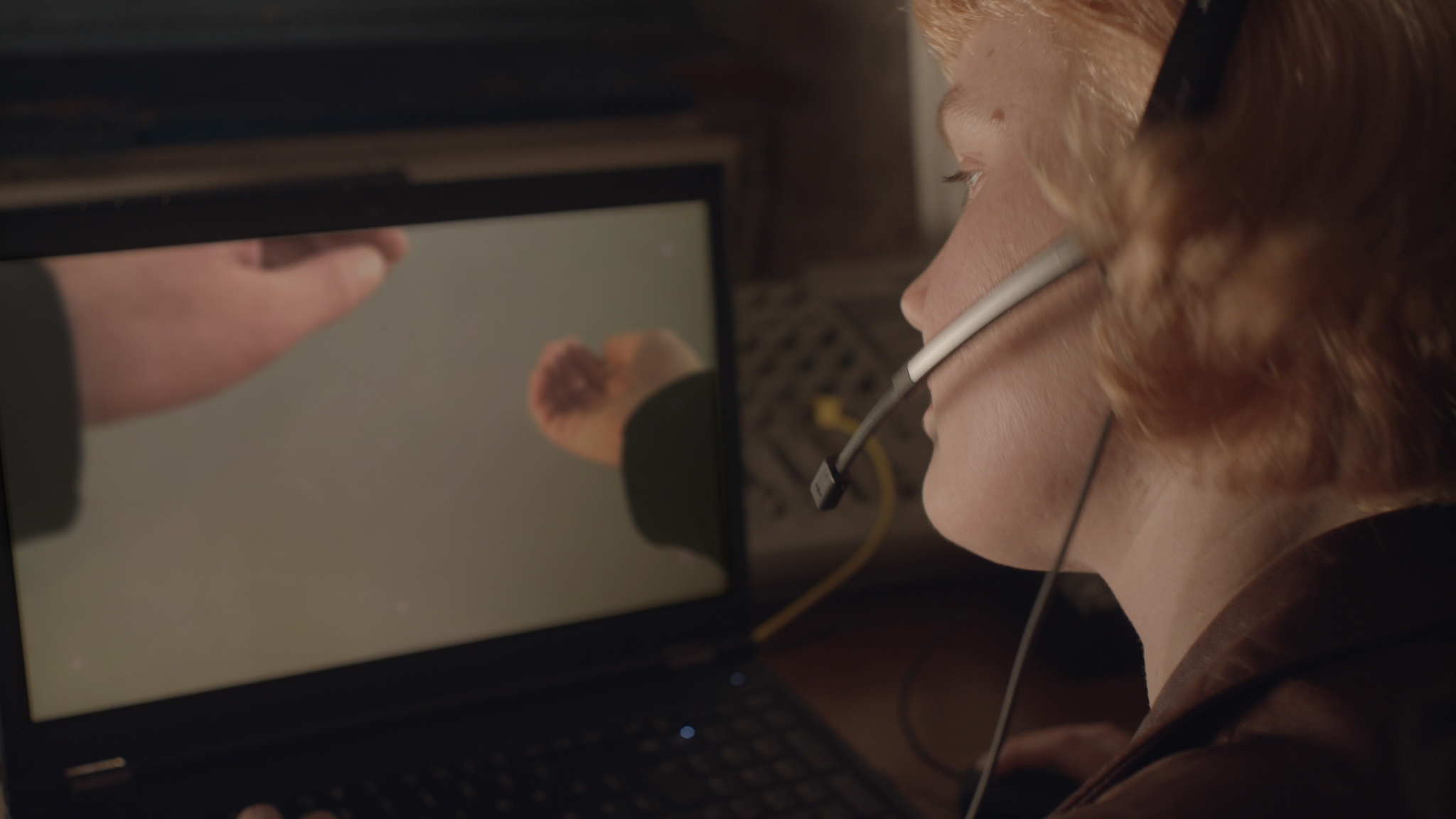Reframing: Game as Metaphor
27 - 31 January, 10:30 - 17:30, LUCA School of Arts, C-Mine Genk
Methods: Remote Reality Game Design, Collective Worlding

LUCIID Remote Reality Game Prototype, Player: Hannah Schiefelbein Avatar: Nick Koppenhagen, Photographer: Marijn Degenaar
Ever get the feeling that life's a game with changing rules and no clear sides, one you are compelled to play yet cannot win? Welcome to gamespace. McKenzie Wark
The workshop will focus on the iterative development of a Remote Reality Game, a format which blends elements of digital gaming and Live Action Role-Playing (LARP). This approach invites participants to critically reflect on the social, emotional, and psychological implications of living in (a) world(s) increasingly mediated by digital technologies.
The Remote Reality Game builds on the framework of a video game, specifically the dynamic between the gamer and avatar. However, in this game, both roles will be played by participants. The two will connect via video call to collaboratively embody a single character. Their dialogue will become the character’s inner monologue, while the avatar’s physical environment is leveraged as game space, viewed by the gamer through a live video feed. This first-person perspective, commonly found in video games, will be provided by a smartphone, either handheld or mounted on the avatar’s chest. As a result of this setup, ontological levels of reality that are normally experienced as separated become intertwined. This deliberate ontological nesting combined with the first-person perspective within the Remote Reality Game context opens a space of experiential possibilities inaccessible in most digital environments.
Through a synthesis of theory, practice and dialogue, we will create and reflect on the conditions for worlds to emerge. This will include embodying characters, negotiating the rules for interaction, and enacting a non-linear narrative, using the game and its mechanics as a metaphor for understanding how we situate ourselves within worlds.
The course will be partially joined by the students of the REPLAY Master program, who will playtest the final game prototype. We will conclude the workshop with a collective debrief to process our experiences during the development and playtesting of the game.
Karin Verelst (RITCS) is a philosopher who went from metaphysics to dramaturgy and from worldviews to worldbuilding. She combines art and science in experimental contexts where the boundaries between ontologies of experience in real and represented worlds are crossed in different technological settings. She co-organised the series of CLEA Systems at Play conferences.
Carina Erdmann (LUCA) works on the intersection of game design and performance, researching (role) play, and collective (un)worlding as methods for social speculation. In different contexts and collaborations, she develops adaptive game architectures through which players (de)construct (unspoken) rules and act out alternative agencies.
Steph Holl-Trieu is an artist and writer based in Berlin and Vienna. Her practice pursues questions of materialist aesthetics—engaging with the material conditions of our modes of perception and the production of meaning. Emerging through writing, installation, sound, performative readings, and (role-playing) games, her work often remains process-based and is situated within collaborative or collective settings.
The workshop builds on the course ‘Distant Bodies & Different Worlds’ held as part of FUTURE NARRATIVES at the Royal Institute for Theatre, Cinema and Sound (RITCS) in Brussels and on a series of workshops “Temporal Worlding” held at the digital gaming conference DIGRA in Guadalajara, Mexico amongst others. It explores the Remote Reality Game Format developed within the 0ct0p0s collective.
References:
J.-L. Baudry and A. Williams, Ideological Effects of the Basic Cinematographic Apparatus, 1974-1975
Christian Metz - Impersonal Enunciation, or the Place of Film, 2016
McKenzie Wark,GAMER THEORY, 2006
Roberto Alonso Trillo & Marek Poliks, Non-Player Dynamics: Agency Fetish in Game-World, 2024 (lecture)
Ian Cheng,Emissary's Guide To Worlding,2018
Karin Verelst, Building 'Real Worlds': From the Storytelling of Science to the Science of Storytelling 2023
Patricia Reed, What is a World?,2024 (Podcast)